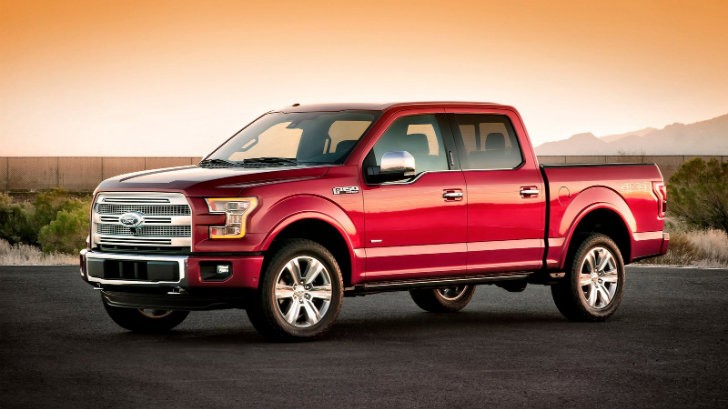Due to increasingly dramatic regulations on CO2 emissions and fuel economy, the auto industry is adopting aluminum over steel to meet the government imposed thresholds. In that regard, the world's number one supplier of automotive-grade aluminum sheets expects sales to increase a whopping three-fold in only 6 years' time.
Novelis Inc. is anticipating that companies such as Ford, which uses 95 percent aluminum for the all-new 2015 Ford F-150 light-duty pickup truck, Jaguar Land Rover and Audi will adopt the most abundant metal in the Earth's crust. Debnarayan Bhattacharya, vice chairman of Novelis, recently declared for AutomotiveNews that "the overall pie is growing and still the share of automotive sales will jump. We've started supplying to Ford for their F-150."
Moreover, Bhattacharya added that sales of the aluminum used for making beverage cans will drop from 50 to 60 percent in the near future. As for total output destined for the auto industry, shipments may climb as much as 25 percent of total sales volume by the year 2020, which is a lot considering that cars take circa 9 percent of the company's 3 million metric tons shipped throughout the world every year.
Aside from the greenhouse gases and the fuel economy standards pushed by governments all over the world, there are a few other benefits of using aluminum in a vehicle. Take, for example, the 2015 Ford F-150. Ford says that the large amount of military-grade aluminum used in making the truck's body has cut its curb weight by up to 700 pounds if you compare the 2015 with the 2014 model year.
Lightness equals better fuel economy, acceleration and lower CO2 emissions, but there's another benefit to using the material. Take Jaguar's way of doing things: aluminum is not only shedding pounds off the carmaker's sleek sports cars and sedans, but also increases the structural rigidity of the chassis, which aids driving dynamics. Considering aluminum is much easier to form into sheets and costs less than carbon fiber, carmakers will most likely adopt the material like crazy in the following few years.
Moreover, Bhattacharya added that sales of the aluminum used for making beverage cans will drop from 50 to 60 percent in the near future. As for total output destined for the auto industry, shipments may climb as much as 25 percent of total sales volume by the year 2020, which is a lot considering that cars take circa 9 percent of the company's 3 million metric tons shipped throughout the world every year.
Aside from the greenhouse gases and the fuel economy standards pushed by governments all over the world, there are a few other benefits of using aluminum in a vehicle. Take, for example, the 2015 Ford F-150. Ford says that the large amount of military-grade aluminum used in making the truck's body has cut its curb weight by up to 700 pounds if you compare the 2015 with the 2014 model year.
Lightness equals better fuel economy, acceleration and lower CO2 emissions, but there's another benefit to using the material. Take Jaguar's way of doing things: aluminum is not only shedding pounds off the carmaker's sleek sports cars and sedans, but also increases the structural rigidity of the chassis, which aids driving dynamics. Considering aluminum is much easier to form into sheets and costs less than carbon fiber, carmakers will most likely adopt the material like crazy in the following few years.

